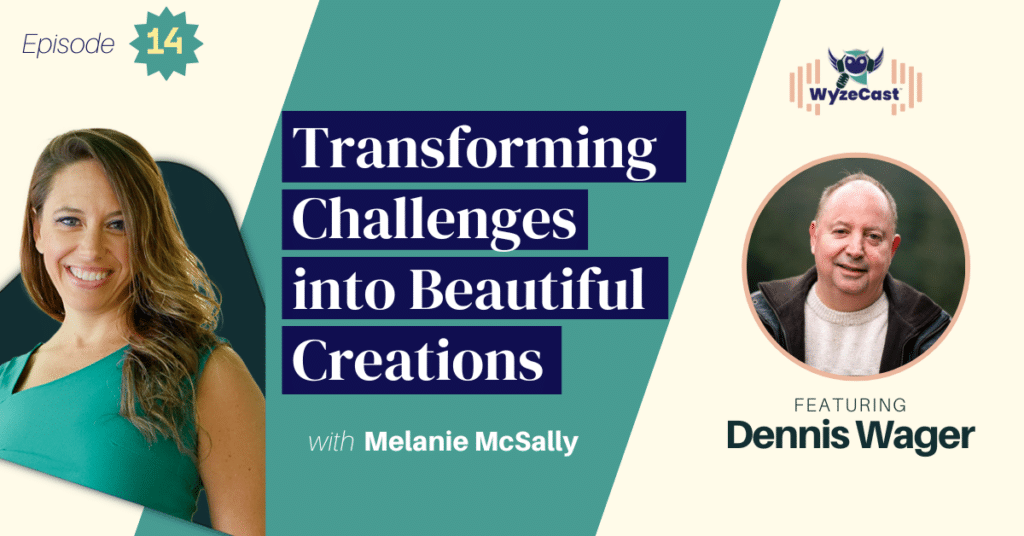
Get ready for an explosive conversation in WyzeCast Season 2, Episode 14, as we sit down with Dennis Wager, the President of Rock Busters. Dennis is not your average guest – he’s the man they call when things get tough, literally stuck between a rock and a hard place. From underwater blasting and tunneling to helicopter and remote access projects, Dennis thrives on the challenge of blowing things up in the most exciting and inspirational ways.
In this episode, we dive into Dennis’s lifelong passion for building, dismantling, and making things better – with a penchant for the bigger, the better. Join us as we explore his diverse projects, ranging from government-assisted initiatives to collaborating with archaeologists and contributing to underground mine projects and luxury cliffside homes worth millions.
Discover how Dennis tackles tough situations, removing unwanted rock from construction projects and turning discarded rock into stunning creations. This is more than just demolition; it’s a journey of transformation, creativity, and overcoming obstacles.
Watch on YouTube
Listen on Spotify
Melanie McSally
Welcome to another episode of WyzeCast™, the show that elevates the voices, shines the light, showcases the gifts of our heart-centered guests, and amplifies the positive differences they are making in the world.
Folks, you’re in for a treat today because we get to talk about blowing things up. And not in a hazardous way but in a fun, exciting, and inspirational way. Our guest today loves to blow things up! From an early age, he loved building things, taking them apart, and looking for ways to make them better. He loves the challenge and still does. The bigger, the better. Today, those projects range from underwater blasting and breaking and tunneling jobs to helicopter and remote access jobs. He’s assisted the government. He’s worked alongside archaeologists. He’s assisted with jobs that range from underground mine projects all the way to multi-million dollar luxury custom home projects built on the side of a cliff. When people are literally stuck between a rock and a hard place, this guy, our guest today, is the one that they call. He is your man.
My name is Melanie McSally, your host for today’s episode, and without further adieu, I would like to give a warm welcome to Dennis Wager. Dennis, Welcome.
Dennis Wager: Thanks, Melanie. I really appreciate the chance to come on. This is great.
Melanie McSally
Awesome, awesome. So I remember when we first started working together, I used to tell all of my family and friends I work with the guy who blows things up.
Dennis Wager: Yeah.
Melanie McSally
So, why don’t you tell our listeners what you do, what your company does, who you are, and a little bit about yourself?
Dennis Wager
Sure, yeah, happy to. It’s actually true. That’s what I do blow things up. We do some really high-profile blasts. And we do some not-so-exciting rock splitting. And we do things like taking a rock out of the basements of houses. For example, splitting boulders when they’re doing excavations and they encounter boulders to, you know, big blasts. For example, the Seymour River after a landslide or breaking out rock in a trench at the bottom of the Grand Canyon. So I’ve been very fortunate to be involved in some really cool jobs.
Melanie McSally
Awesome, awesome. So. So, that leads me to ask, what is the coolest job you’ve ever done? Not to limit anybody because they’re all cool, right? But, like, what’s what sticks in your mind? Dennis – Must be the Grand Canyon. Yeah, the Grand Canyon was very cool because it was all helicopter access. So, the job was at the bottom of the canyon. So everything had to be flown in. So we flew in a mini excavator, a Cat 305. And we flew in a bobcat, an air compressor, all of our expanding grout, and myself. And then I got to go down and train the guys. We worked with a company from California. And I taught them how to use our expanding grout, which I’ve developed in a lab here in the US, and have it made overseas and shipped in.
So everything had to be flown in with the helicopter. And it was very limited access. And the environment that we were working in was probably the coolest because we had to work alongside the state parks, the Rangers, as well as their archaeologist. It’s the first time I’ve ever had to run things by an archaeologist, like, what we’re going to do. It’s kinda like, you know, when you get the calls from the army, like, hey, we’re going to hook you up with our hydrologist and talk about some things, right? A lot of that. Yeah, what is that, and learning as you go. It was so fun because I got to stay at the bottom of the canyon there, at the Phantom Ranch, and do some incredible hiking and it was almost a full moon at that time. So I was out, kind of in the middle of the night taking pictures. Just yeah, interesting stuff.
Dennis Wager
Melanie McSally
So many follow-up questions I have. First of all, I have all of these images going through my head of you helicoptering all this equipment in. And I have this imagination of all these people reporting UFOs or something?
Dennis Wager: Yeah, no, it does look like a UFO; the big helicopter and an excavator hanging from it.
Melanie McSally
I can imagine. Awesome. Awesome. So, I’ve heard you talk about how you help people build homes in places that they otherwise couldn’t because you remove, literally, all the roadblocks in the way. Do you want to talk about that for a minute?
Dennis Wager
Yeah, sure. It’s kind of funny. It’s like, you know, when my phone rings, I honest to God, I look at my phone and like, oh, I don’t know this number must be good. I’m the first guy to answer the phone, and half the time, it’s somebody with a problem, like, hey, I’m excavating, and I found this big rock. What do I do? Or, hey, we’re bidding this job, and there’s, you know, so many thousands of feet of trenching, and then there’s rock. We’re like, you know, this week- it’s been I got an email from Dubai, you’re like, Oh, we’re doing this job, and we can’t get the rock out with our excavators and hydraulic hammers and, you know, we found you online. We’ve seen you have this magic chemical stuff. Will it work? And that’s honestly where a lot of our conversations start. So, it usually just starts with a conversation. People, they either have one of the two p’s, I call it- they have a problem, or they have a project. So a project is when you know you’re going to encounter a rock and you don’t quite know how to deal with it. So that’s where we can help. And we specialize in all the alternatives to where you can’t blast.
So all the guys that do the high explosive blasting. Like the pits, the mines. They know what they do, and they do that on a daily basis. But there are so many jobs where you just can’t blast. You’re beside the house or wherever vibrations are an issue, and you’re just not allowed. It’s just prohibited. So that’s where people struggle.
Melanie McSally
yeah. You know, it’s funny, I watch all of these home improvements with my parents because I grew up in construction. And, you know, whenever they do the estimate and the budget, they always align. They never leave extra money for the problems.
Dennis Wager
Yeah, that’s a question that we get all the time, too. It’s like, how much is it going to cost? And unfortunately, they never liked my answer because I don’t know. I know what our rates are, and we charge by the hour. And we can set up certain sizes of crews. And we can apply different methods. And I always, you know, take pictures from them, or sometimes, if it’s local, I’ll go by the site or send somebody by the site. But I always just put a range of, I think it’s going to be this long to this long, and it’s about this much to this much. But an actual price, like you never know, right? And we do a lot of jobs. And I’m sure it’s the same in Boston as it is here. We get these affluent areas, such as Whistler and West Van. There’s lots in Arizona to where, you know, they built these houses decades ago when land was cheap, and they just didn’t bother taking out the rock. So now you have a house, which, as you know, used to be worth $300,000. Now, the average house is three and a half million dollars, and guess what? It’s all full of rock in the basement. So now, all of a sudden, it’s worth it to take that rock out and build that out into a new space.
Melanie McSally
Absolutely, absolutely. So, for our listeners who don’t know, Dennis is from British Columbia, Canada. So, Dennis, tell us where because I know you’re not limited to Canada, so where do you help people? So why don’t you give us a little bit of an idea of the regions that you work in where you’re expanding? Who do you help?
Dennis Wager
we’ll go anywhere. So we do a lot in the US and a lot in Canada. It just seems to be like, well, the rockiest areas, you know, Provinces or States. So, you know, like, we don’t do hardly anything in Mississippi or Louisiana. But you know, you get up into Virginia or North Carolina or in New York, and guess what, there’s lots of rock. And it’s always where there’s lots of rock, and there’s, you know, population, and people have money to take care of the rock or to remove the rock. So we are, you know, quite busy here in BC locally in Vancouver, where I am, in Whistler, a ski town, which is, you know, a couple of hours north of us, but also in Ontario and Quebec, some in the Atlantic Canada region. But yeah, we kind of skip the prairies because it’s just kind of like Mississippi. There’s just nothing there for rock, right?
Melanie McSally
Yeah. So you’re book-ending the Americas right east and west coast and staying out of the center?
Dennis Wager
Yeah, just stay out of the center. Yeah. That’s exactly it. So we have a warehouse in Seattle. We have inventory there, and we ship it anywhere in the US. We’re going to be opening up another warehouse in Buffalo. So, we can serve the East Coast from there. And yeah, we’re starting to dabble in other countries, you know, like Dubai, or Saudi Arabia, or Australia, the UK, those kinds of other countries. And it’s really, what’s really cool Melanie is like, this business isn’t that old. And we’ve really come a huge way. We’ve developed these smart cans, we call them, which are smaller, like 10-foot square shipping containers. They’re custom-outfitted with all of the holders for our drills and jackhammer hoses and everything that we need. We’ve developed a heating system to heat the grout overnight. So that’s its own separate container. We have our trucks all branded. The containers are branded. So they can literally just get moved to a site on a five-ton Crane Truck and get set up and go to work. So we can set up in San Francisco. We could set up in Boston. We could set up anywhere, right? That’s really the goal. We’re just starting to spread out like that. And it’s really fun to watch because it’s just like, when you start a business, you just have this idea. And you think, okay, we’ll do that. It makes sense. It’s logical. You know, I’ve done similar things before. I believe in what my concept is. But then to actually see it work, and to see people continually call you, they’re like, Oh, my God, I’m so happy with you. To see our Google reviews are five stars, and there are all these nice positive comments. You think, wow, I really did that. So that’s what’s been amazing.
Melanie McSally
Yeah. I mean, it’s fun watching what you’ve invented come to life, you know?
Dennis Wager
Because a lot of it is complicated. But not all of it. Some of it is just simple stuff, but it’s kind of bits and pieces from different industries, and it’s just pulling it together, and then branding it as one and making it super simple for somebody to get in and use, right?
Melanie McSally
Yeah, I mean, in the tech space, we’re always innovating, but we’re not just innovating in tech; we’re helping businesses innovate. So, we’re helping them brainstorm new inventions, new opportunities, all the things. And one of the easiest ways to invent something new is to steal it from a different industry and create it for your industry. So I love what you’re saying here because it just re-emphasizes that point of view. You know, just because it’s not new, doesn’t mean it’s not new.
Dennis Wager
Exactly. It’s just what I was saying. These people that call, they’re literally stuck. They don’t know what to do.
Melanie McSally: Between a rock and a hard place
Dennis Wager
That’s the name of my book. That’s coming out soon. And yeah, I’m glad you mentioned that because it’s just like, the whole emphasis, or the whole basis of the book, is really on starting a business from nothing. And I’ve done that several times in my life. It’s about taking chances and kind of just making steps happen. Just go step by step. It’s cool when you can help people through that. You know, whatever stage they’re stuck at, helping them kind of pull it together. And not everybody listens to you. Most do.
Melanie McSally: Yes, I know that all too well. Why am I failing? Because you didn’t listen to me.
Dennis Wager: Yeah, exactly.
Melanie McSally
Okay, so you have a book. You have a business that blows things up. You have these innovations, these hardcore products that you also sell. So, people don’t necessarily have to hire you to come out. They might just use one of your products. Do you want to talk about those for a second?
Dennis Wager
Sure. So we have two products. One is an explosive, and one is not. One is a powder. It’s an expanding grout that we manufacture. It’s very simple to use. It’s a powder. You mix it with water. You simply drill your holes in the rock, pour it in, and then it expands overnight and cracks your rock. And we can manipulate that by the diameter of holes that you drill and the spacing that you put your holes at. So we can control how much power we want to put into the rock. And it’s really a matter of just matching up what the grout will do versus the hardness of the rock or concrete. It also works the same in concrete. Yeah, then explosives. We do training on that. We teach people how to use it, and then we supply the product. So there are certain cases where, say, you’re in a job where you can’t use blasting, like typical high explosives, you may be able to use our low explosives, which go off differently. It’s a softer explosion. It’s still instant to the eye, but the vibrations are less than half. That’s typically what people worry about. They don’t want the vibrations, and they don’t want the fly rock issues, which, you know, are problems. And then, if you can’t use the grout, you can use the grout anywhere.
Melanie McSally: How safe is it for people to use explosives themselves? It doesn’t sound very safe.
Dennis Wager: No, it’s not.
Melanie McSally: I’m from Massachusetts. We discourage this kind of behavior.
Dennis Wager: That’s why they have these things called regulations.
Melanie McSally: Yeah, we’re a very regulated state.
Dennis Wager: Or they have these other consequences, like going to jail.
Melanie McSally: Just so you know, YouTube and Spotify, we are not blowing things up on this channel.
Dennis Wager
That’s right. Yeah. No, it’s a trade you have to learn, and in most Provinces. Well, in BC and in Newfoundland, you have to get your blasting license from WorkSafe BC or whatever it is a Newfoundland. I believe California and some of the other states are also very strict, but a lot of the states are kind of in the middle again, the same as with Canada. It’s kind of like the Wild West. You’re on your own. Yeah, there’s no comment there. But joking aside, you want to be safe. So, you want to, first of all, learn what regulations are in place, and then you want to find somebody that can mentor you. In most cases, you need to apprentice under a blaster to learn the trade and then write an exam.
Melanie McSally
So would you say that most of the people who are buying blasting materials or explosives, rather, are people who are already in that industry?
Yeah, ok, so it’s not your common Joe.
Dennis Wager
Yeah, it’s not just someone looking to blow something up. We do get those calls, but they’re not really taken seriously.
Melanie McSally: Okay. Yeah, you had me scared for a moment there.
Dennis Wager
Yeah. No, if you get a blaster or somebody that’s in that industry that wants an alternative, then we can take it from there. But if you get Joe Blow, or a homeowner or a contractor that’s not a blaster, and they need to remove the rock, then the grout is very simple. So, it’s just a matter of, you know, you can just, we have a grout guide, we call it, which explains the instructions and helps, you know, just do a regular drill pattern. We also do consultations for free. We help put drill patterns and help explain everything that people need to know. So we actually just give them the choice. It’s just like if they want us to come and do it, great. If they want to do it themselves, that’s great. We’ll help, you know, explain everything and teach them, show them what they need to know to do it. And, you know, you gotta love technology now because, well, in the old days, it was like, oh, come and look at my job and give me a price. And now it’s like, just send me some pictures, and I’ll give you an estimate. It’s just, like, so different. Like, I don’t need to leave my office, right? So, yeah, you gotta like that. There’s no gas to burn. There’s, like, just send me the pictures, right?
Melanie McSally
WelcomeIt’s funny. My mom was telling me this story. I don’t know if she found it online or if it was a friend or something. But she was telling me this story about a person who wanted to build something in their house, right? So they went to a contractor, and they’re like, this is what I want to do. And the contract was like, Okay, this is how much it’s going to cost. And let’s just say it was $10,000, just for a round number. And the guy was like, I don’t want to pay that. And then the contractor was like, Okay, well, you can take my course, you can go buy the materials from a home improvement store, and you can get all the tools and whatever. And he’s like, I don’t want to own all these tools. And the contractor’s like, Okay, well, you can rent them for me, and then take this course, and, you know, apprentice kind of thing, and in the end, the cost to do it all was going to be $15,000 versus the 10 to hire the contractor. So I love the fact that you offer all these options. But please, people, do your math because a lot of times, it costs you more money to do it yourself, and the quality might not be as good.
Melanie McSally: Okay. Are there any last thoughts you want to leave our listeners with?
Dennis Wager
Yeah, so what I would like to leave with is just try to put in your mind what you could create with rock and stuff. Because now, what we do with a lot of the rock that we break out of these houses. We’ll drill them and make them into water features, a bubbler for landscaping. We will sell rocks. We will size it, sort it, and sell it for landscaping. So there’s a lot of reuse and stuff that you can do. Now, with the technology that we have, like, if you’re going to take out rock from your basement, for example, we can cut the perimeter so we can actually go right flush to the foundation walls. We can open up the whole entire space. And it really is great because so many people now are wanting to stay home. They don’t want to go to the gym. They want to have a gym at home. They don’t, you know, maybe they’d like an entertainment room, or a place that’s really a cool space, and just those kinds of things. It’s the kind of thing about where you put your mind to. What can you create that maybe the rocks are getting in your way?
Melanie McSally
I love it. Not only are you helping people remove rocks from dwellings or their vision home. But you’re also allowing them to take that material and create something gorgeous out of it. It’s kind of like how they do the on those shows where they depict repurposing wood in house remodeling projects. So not only are you helping people create beautiful spaces, spaces in places otherwise unavailable due to obstacles, but you’re also helping with sustainability by repurposing the rock. That’s amazing.
Dennis Wager
Yeah, that’s it. And also, we’re really expanding more into managing partners, which are people that could take on a territory, whether it be California or Nevada or wherever it might be. And then just grow that area. So it’s really great because you can involve people to do the work. And you can involve people that are getting the rock removed. And you can involve people that are purchasing the rock as a new, beautiful landscape. So it’s really touching on a lot of different aspects. And it’s helping a lot of people.
Melanie McSally
Awesome. So, what kind of person would be a good fit for taking on a territory? Are we talking businessmen, construction folks, anybody, like what type of person would that be?
Dennis Wager
The ultimate type of person would be somebody that’s in construction, maybe has some small machines, bobcats, mini excavators, trucks, either excavating or landscaping or that type of field. But even just any kind of construction background and willing to pound the pavement, get some people, you know, some work. We do a lot of marketing. I’ve got an excellent marketing team so we can make the phone ring. And it’s just really somebody that’s got a good common sense of bringing on a crew, you know, going to get the jobs done, and working together. So we can help mentor them, train them, we can, you know, we provide all of the tools, all the equipment, and it’s really just somebody that would fit into running an area.
Melanie McSally
Awesome. Well, folks, Dennis has given you a wealth of information and so many different ways that you could work or partner with him. Click here for more information.
If you find yourself between a rock and a hard place, you have a rock that you would like to make into something beautiful, or if you’re in the industry and you’d like to partner with Dennis for your territory, then I highly suggest you reach out.
Dennis, thank you so much. It has been such a pleasure having you here today. And getting to talk about fun things. It’s so nostalgic for me because I’m a construction baby. So thank you for being here, for making me laugh, and for reminding me of my childhood.
Dennis Wager: Yeah, thank you. It was great. I really like chatting with you. And it was really good. Thanks.
Melanie McSally
I want to thank our listeners for tuning in. If you like what you’ve heard here today, please do like, share, and comment. We are trying to get WyzeTribe™ to be a hot new release. So if you feel inspired, if you feel moved, if you feel called, if we earned it, please do like, share, and comment. It is free for you to do so and really helps the podcast grow. And we really do love your engagement.
This was another episode of WyzeCast™, the show that elevates the voices, shines the light, showcases the gifts of our heart-centered guests, and amplifies the positive difference they’re making in the world.
If you want to learn more about WyzeCast™, you can visit our wyzecast.com. We dropped ten episodes every month on the 21st, so you can binge-watch or spread them out over the month. Whatever suits your mood and lifestyle.
Once again, my name is Melanie. It has been my pleasure being your host today. Thank you for listening. Thank you for watching, thank you for your engagement, and I invite you to come back and join me once again for our next episode of WyzeCast™.

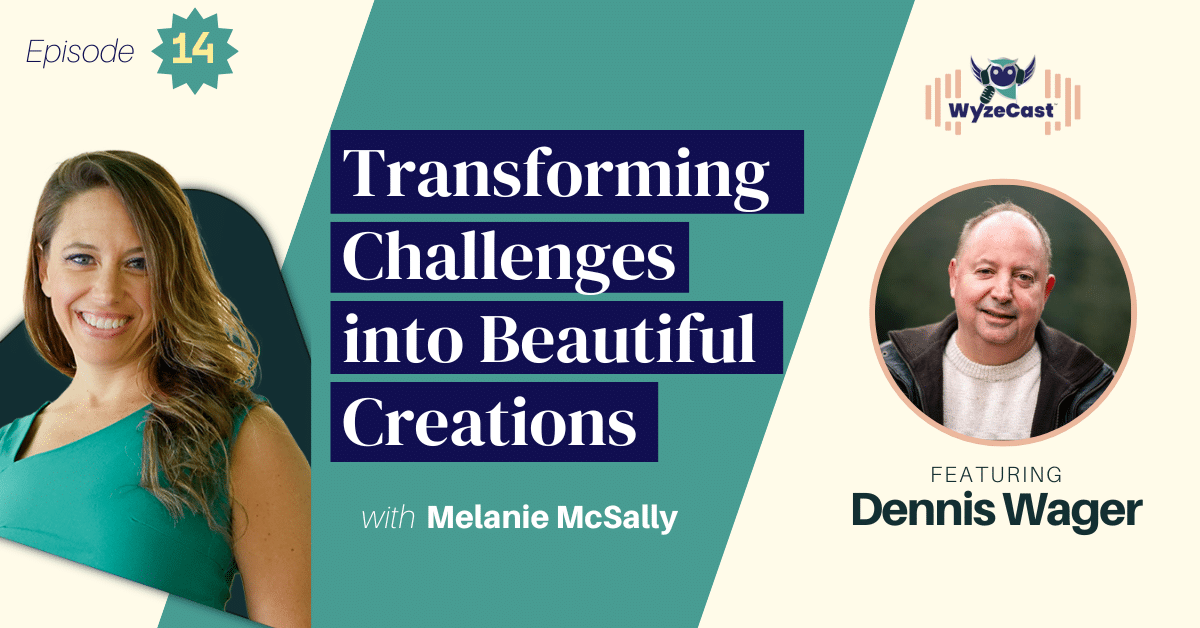
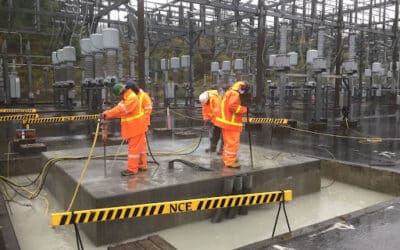
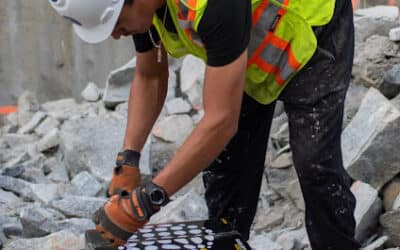
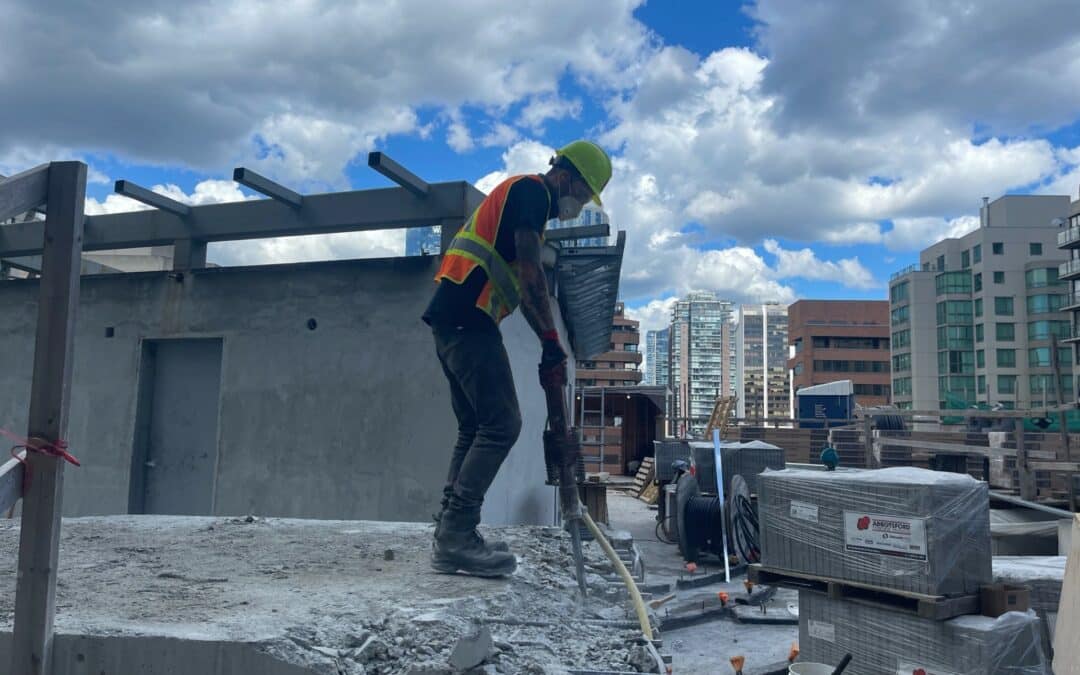
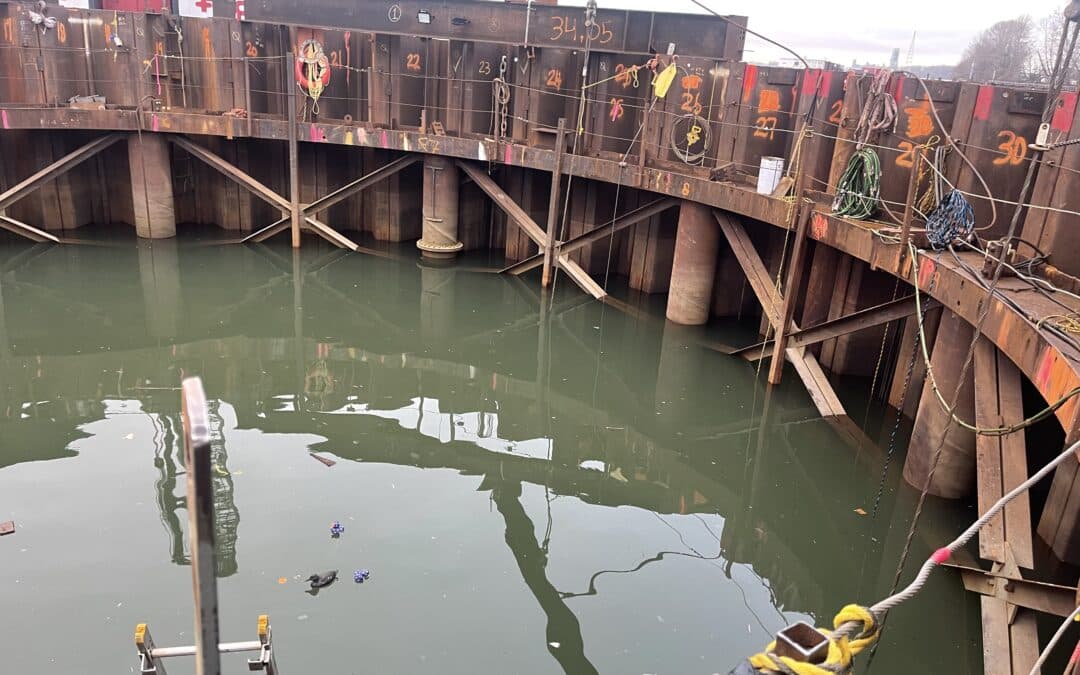
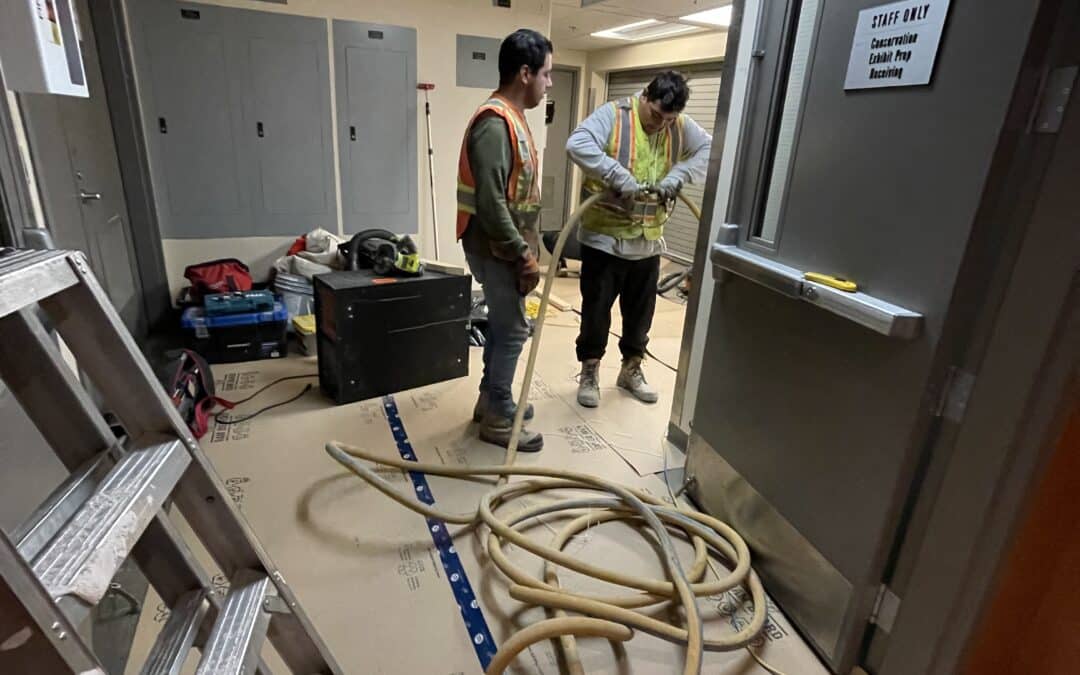
0 Comments